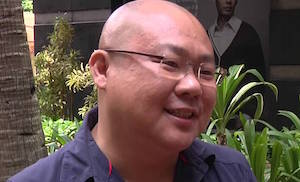Different bubbles, different stories

Philip Golingai, The Star
AN armchair politico based in Petaling Jaya got out of his WhatsApp bubble and visited Kota Kinabalu for business.
In my hometown, he spoke to Uber drivers, businessmen and salesgirls. Two days into his trip, he excitedly called me.
“The Opposition will win Sabah!!!” he said.
Surprised, I asked: “On what basis?”
“I spoke to Sabahans and overwhelmingly they said they will vote against Barisan Nasional,” he said.
“Can I guess where you went?” I said.
“Yes,” he said.
“Did you go to Api Api, Luyang, Likas, Inanam, Kapayan and Moyog?” I said, naming state seats that were in or adjacent to Kota Kinabalu.
“I think so,” he said.
I then asked him to describe the places where he did his political tourism. They matched my guess. And I had to burst his bubble.
“Of course you think the Opposition will win, because you visited seats that the Opposition had won in GE13,” I said.
“Try going to other seats next to Kota Kinabalu, such as Tanjung Aru, Petagas and Karambunai. Visit the Bajau villages. Visit the ‘photocopy’ Malaysians in Pulau Gaya or visit Putatan town,” I said.
“The voters will tell a different story. These seats are Umno strongholds.”
In GE13, Barisan Nasional won 48 out of the 60 Sabah state seats. And if my armchair politico friend travelled to other seats in the East Coast or East Coast and in the interior that Barisan had won, he would have been utterly disappointed.
But then again, he might not, as he would have probably spoken to people in town areas and he would have got the impression that Sabah was black for Barisan.
He needs to get out of town to see political reality.
(In political intelligence lingo, black means seats that Barisan will lose; grey is for seats that can go either way and white is seats that Barisan will win.)
The moral of this story is that if you remain in your urban political bubble, you’ll think the Opposition will win. There are other political bubbles outside your bubble. And they tell a different story.
The other thing is that Uber and Grab drivers are also a misleading source of political information.
I’ve taken Uber and Grab in Alor Setar, Ipoh, Petaling Jaya, Kuala Lumpur, Johor Baru, Kuala Terengganu, Kota Baru, Kuching and Kota Kinabalu. And, in my unscientific survey, I would say six out of 10 of them are anti-government.
These are the type who blame Prime Minister Datuk Seri Najib Tun Razak for everything.
One of the main reasons is that they don’t want to be a “glamorous” ride-hailing driver. But they have to work full-time or part-time for Grab or Uber because they have to. And they blame Najib for their career choice.
Three out of 10 are neutral or clueless about politics. They have no interest in politics.
They don’t know that Amanah exists. Or that DAP’s Taiping MP Nga Kor Ming may challenge Gerakan president Datuk Seri Mah Siew Keong for the Teluk Intan MP seat. Or that the motion on the Election Commission’s redelineation exercise will be tabled on Wednesday.
What they know is Malaysian pop diva Datuk Seri Siti Nurhaliza is now a mother and her baby weighs 3.55kg and was delivered by Caesarean section at 8.17am on Monday.
One out of 10 are pro-Barisan or are neutral. Neutral as in the driver is not rigidly black and white in his political views. He’s reasonable as he sees the grey in politics.
Back to my favourite topic – political bubbles.
When you go out of your urban political bubble and enter the rural Malay bubble, it is a different world.
However, many urban voters have not stepped out of the Klang Valley and visit the Ulu Tebrau Felda settlement in Johor or Kampung Tanjung Siam in Pedu, Kedah.
These are rural seats dominated by Umno and PAS.
Why do you think Pakatan Harapan accepted Tun Dr Mahathir Mohamad’s Parti Pribumi Bersatu Malaysia into its fold? It knows that without PAS, it can’t make a dent in the rural Malay seats.
The rural voters have different needs. Which reminds me of a conversation I had with a Sabah MP.
“MPs from Klang Valley will bring up issues such as slow Internet connection, whereas MPs from Sarawak will be asking why there is no electricity or water supply in the constituency,” he said.
A DAP MP, representing a constituency that has pockets of Malay villages, explained to me what parachuted potential opposition candidates were doing wrong when they spoke to rural voters.
“They talk about 1MDB. For the villagers, it is a complex issue. They don’t understand or care about the issue. What they are interested is whether the price of rubber will go up or whether they can get a fertiliser subsidy,” he said.
A PAS assemblyman in Kedah told me that rural Malay voters were swayed by the 3Rs – religion, race and royalty. An Amanah politician in Johor lamented that it was difficult to win over villagers as Umno took care of them from birth to wedding to funeral.
When the armchair politico returned to Petaling Jaya, he WhatsApp-ed me: “What’s carpet bombing (a Sabah term that means voters bombed with money)?”
Looks like he is beginning to understand a political bubble outside his.

